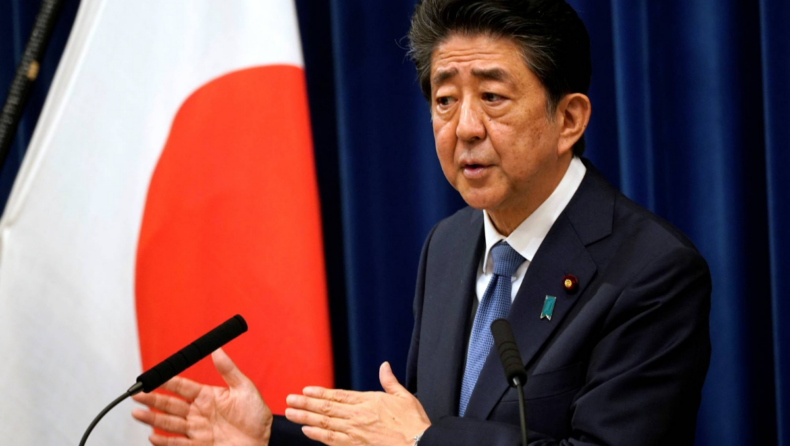Shinzo Abe, 67, was shot from behind by an attacker while running for the upper chamber of the Japanese parliament.
On July 8, NHK World, the nation’s national media outlet, revealed that Shinzo Abe, the former prime minister of Japan, had passed away hours after being shot during an election rally.
According to hospital staff at the Nara Medical University hospital, where Abe was taken after the attack, the gunshots “penetrated his heart,” NHK World said after Abe’s death.
“At 12:20 PM, Shinzo Abe was brought to the hospital. While I reached there, he was in cardiac arrest. The process of resuscitation was used. Sadly, he passed away at 5:03 p.m “Professor Hidetada Fukushima of the hospital at Nara Medical University was reported as saying by the news agency AFP.
According to NHK World, the medical staff said that Abe was “shot at at close range” and that “no vital signs when he arrived hospital.”
According to the accounts in the regional media, the officials stated that the bullet that impacted Abe’s heart “could not be extricated.”
Officials had earlier in the day said that the attacker had fired at Abe from behind while he was giving a speech outside a railway station in the western city of Nara at around 11:30 am (02:30 GMT).
Yamagami Tetsuya, a former military man in his 40s, was the assailant’s name. He was imprisoned for trying to kill someone. He admitted to being “dissatisfied with Abe” and wanting to murder him when being questioned by authorities, according to news agency Reuters.
Abe, 67, is running for re-election to the upper chamber of the Japanese parliament. According to reports, he reportedly fell to the ground after the incident and was discovered bleeding from his neck.
Abe seemed to be in cardiac arrest when evacuated to the hospital, according to a fire department officer.
In the 1930s, during the height of prewar militarism, this was the first assassination of a Japanese premier who was in office or had just left.
Prime Minister Fumio Kishida expressed his “strongest condemnation” of the shooting in his remarks before to the announcement of Abe’s passing. Japanese people and international leaders expressed amazement at the violence in a nation where political violence is uncommon and firearms are strictly regulated.
Kishida struggled to control his emotions as he added, “This attack is an act of savagery that happened during the elections – the very cornerstone of our democracy – and is totally inexcusable.”
The longest-serving prime minister in Japan was Abe. He served 2 terms in office, one from 2012-2020 and the another from 2012-2012. He had left his position owing to health issues.
Leaders from across the world voiced their fury at the assault on Abe and their sadness over his passing.
“Shinzo Abe, one of my closest friends, passed away tragically, and it has left me speechless and heartbroken. He was a great leader, an extraordinary administrator, and a towering figure in world politics. He committed his life to improving both Japan and the globe “Narendra Modi, the prime minister of India, tweeted.
A day of national mourning would be commemorated on July 9, 2022, as a sign of the nation’s profound respect for the late former prime minister Abe Shinzo, Modi stated.
Read More-
- The shooting of Japan’s former leader shocks the country, scarce weapons
- A chronology of former Japanese Prime Minister Shinzo Abe’s career
- The rupee descent to successive record lows pits RBI against a bearish market
- Number of undernourished folks in India declines to 224.3 million; obesity among adults on the rise: UN report
- Twitter Files A Plea For Judicial Review Of Indian Removal Orders












